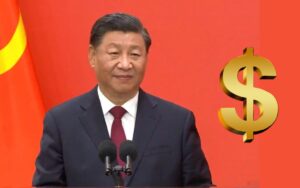
From April 1, 2025, buy products imported through platforms such as Shein e Shopee will be considerably more expensive. The increase in the tax rate ICMS on international e-commerce, dubbed the “blouse tax”, could increase the total taxation of a purchase to up to 100%, in addition to the federal Import Tax.
How does the new ICMS work?
The decision to raise the ICMS rate was announced by the National Committee of Finance Secretaries (Comsefaz) on December 6ro. From the effective date, the state tax, which is currently 17%, will increase to 20%. Although the difference may seem small, the impact will be amplified due to the way the ICMS is calculated: it is levied not only on the value of the purchase, but also on the Import Tax and even on itself, in a mechanism called “inside” calculation. ”.
This formula results in a higher tax burden than the rate appears. For example, a product costing R$300 today reaches the consumer for R$433.73 due to ICMS and Import Tax. With the new rate, the same item will cost R$450, representing an increase of more than 5.5 percentage points in the total tax burden.
For purchases over US$50, the situation is even more drastic. Currently, these products suffer a final tax of 92.77%, which will be increased to 100% from April. An item valued at R$600, for example, will go from R$1,156 to R$1,200.
According to Comsefaz, the measure seeks to protect the competitiveness of domestic trade and national industry in the face of the popularization of international e-commerce platforms. However, experts point out that the main beneficiary will be the government itself, as states and municipalities share the ICMS revenue.
You should read it too!
After “tax on blouses”, Correios records losses of more than R$2 billion
Blouse tax dropped imports by 40%
In a statement to Gazeta do Povo, Diego Zacarias, director of internal audit at Contabilizei, the increase in the rate will not solve the challenges faced by the national industry. “What would help would be to reduce the heavy tax burden that already affects local companies, and not increase taxes on imported goods”, argues.
Impacts for classes C, D and E
The new taxation could also increase inequalities in consumption. A survey by Plano CDE revealed that 46% of families in classes C, D and E do not replace imported products with similar national ones, even with a price increase. Furthermore, the purchase abandonment rate among these families rose from 35% to 39% in the last quarter, shortly after the implementation of the Import Tax for purchases up to US$50.
The study also indicates that 55% of consumers from all social classes believe that the majority of items they buy internationally have no substitutes available in Brazil. Zacarias highlights that, despite a possible stimulus to local commerce, the increase in ICMS could limit access to products or technologies that are only found in foreign stores, restricting choices and making acquisitions unfeasible.
Source: https://www.hardware.com.br/noticias/tributacao-ate-100.html


